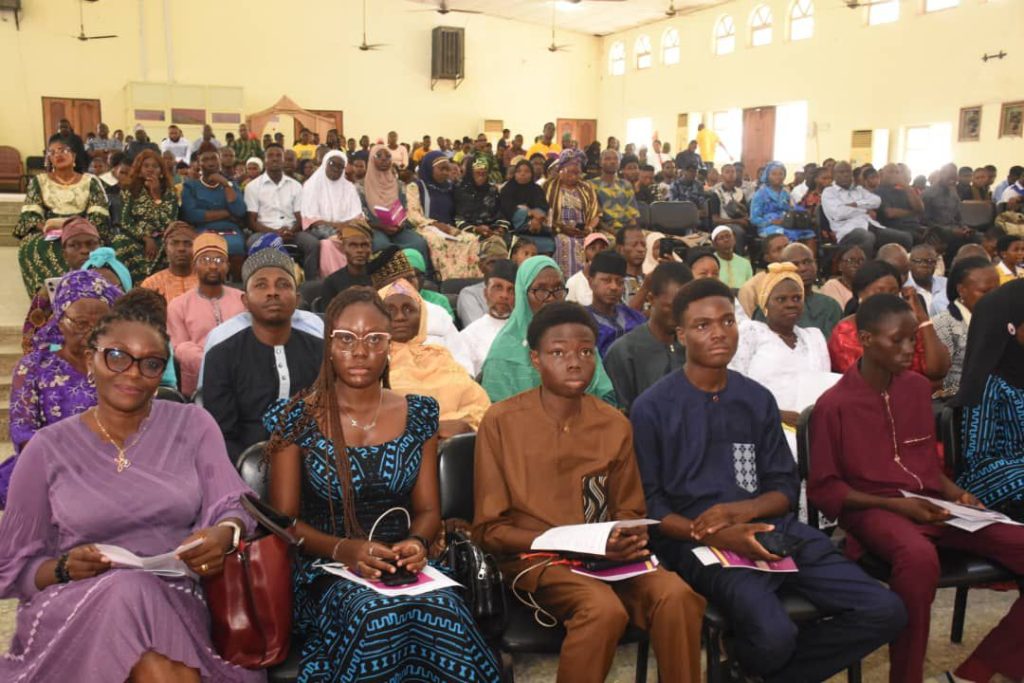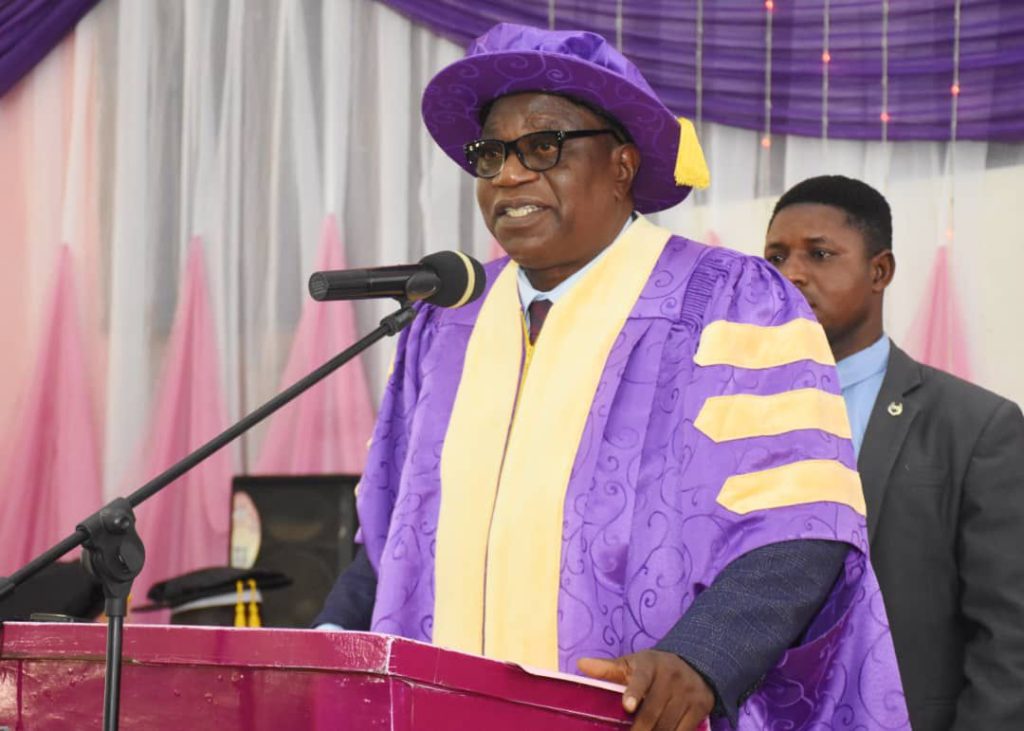A Professor of Environmental Chemistry, Nurudeen Oladoja, has called for a fundamental reorientation of Nigeria’s science curriculum to incorporate the teaching and practical application of Benign Chemistry.
He emphasized that this shift is necessary to enable the deployment of safer methodologies that protect public health and support environmental sustainability—particularly in the area of safe groundwater usage.
Prof. Oladoja made this call on Tuesday, May 13, 2025, while delivering the 39th Inaugural Lecture of Adekunle Ajasin University, Akungba Akoko, titled “The Chemistry Beat: Harnessing Benign Reactions for Water Purification.”

Describing benign chemistry as “clean chemistry for sustainability,” also known as green chemistry, he explained that it is an emerging discipline focused on designing chemical products and processes that reduce or eliminate the use and generation of hazardous substances, and where possible, utilize renewable raw materials. “It is concerned with the use of chemistry for improved environmental performance and primary pollution prevention rather than remediation,” he said.
Prof. Oladoja underscored the health risks posed by unsafe groundwater, particularly due to high fluoride concentration, which can lead to conditions such as mottling of teeth, skeletal fluorosis, and crippling fluorosis. He noted that approximately 60 percent of fluoride ingestion in humans is through potable water. This, he said, makes the development of simple, low-cost, and functional reactive materials to capture fluoride from water streams a pressing necessity—especially in developing nations where dependence on groundwater is high.
He further emphasized the need to reorient researchers and scientists towards a green approach to chemistry in order to meet global sustainability targets. He called for dedicated funding for research into benign chemistry, as well as widespread public education and adoption of existing water treatment technologies.

“Since Benign Chemistry is an emerging field, a repurposing of our science curriculum at all levels is essential,” he stressed. “We must reorient researchers and practicing scientists toward green chemistry—not just for the benefit of developing countries, but in pursuit of the global sustainability agenda.”
Prof. Oladoja warned that achieving the United Nations Sustainable Development Goal (SDG) 6.1—which aims to ensure universal access to safe and affordable drinking water by 2030—would be unattainable without adopting benign chemistry practices. “The complexity of water and sanitation issues requires an integrated approach,” he said. “Given the centrality of chemical sciences to water and wastewater treatment, integrating benign chemistry is crucial to developing the appropriate technologies needed in under-resourced regions.”

Presenting the Inaugural Lecturer, the Vice Chancellor and Chairman of the occasion, Prof. Olugbenga Ige, described Prof. Oladoja as “an academic colossus” and a globally respected authority in Environmental Chemistry whose pioneering research has elevated the standing of Adekunle Ajasin University both nationally and internationally.
He highlighted Prof. Oladoja’s impressive academic contributions, including 117 scientific publications and multiple high-profile appointments such as a CAS-PIFI Visiting Professorship at the Chinese Academy of Sciences (2019–2020), engagements at the Technical University of Munich (2013–2015), and Universiti Sains Malaysia (2011).
Prof. Ige also noted the lecturer’s array of prestigious accolades, including four-time recipient of the Alexander von Humboldt Research Fellowship, the Chinese Academy of Sciences Presidential Fellowship, and grants from the Tertiary Education Trust Fund and the Cambridge-Africa ALBORADA Research Fund.

“In 2024, his global stature was further confirmed when he was ranked among the top two percent of scientists worldwide by the Stanford-Elsevier World Scientist Rankings—an honour that speaks volumes about the impact and relevance of his scholarly work,” the Vice Chancellor added.


